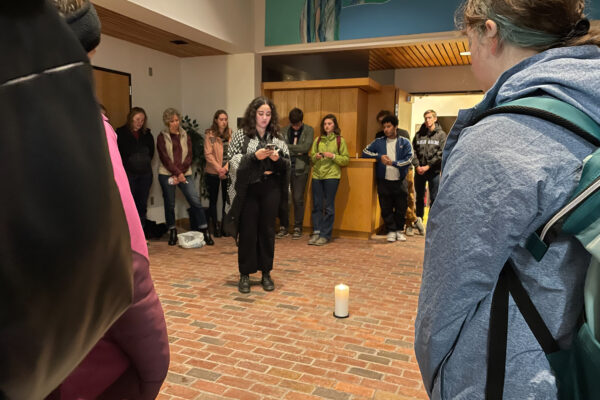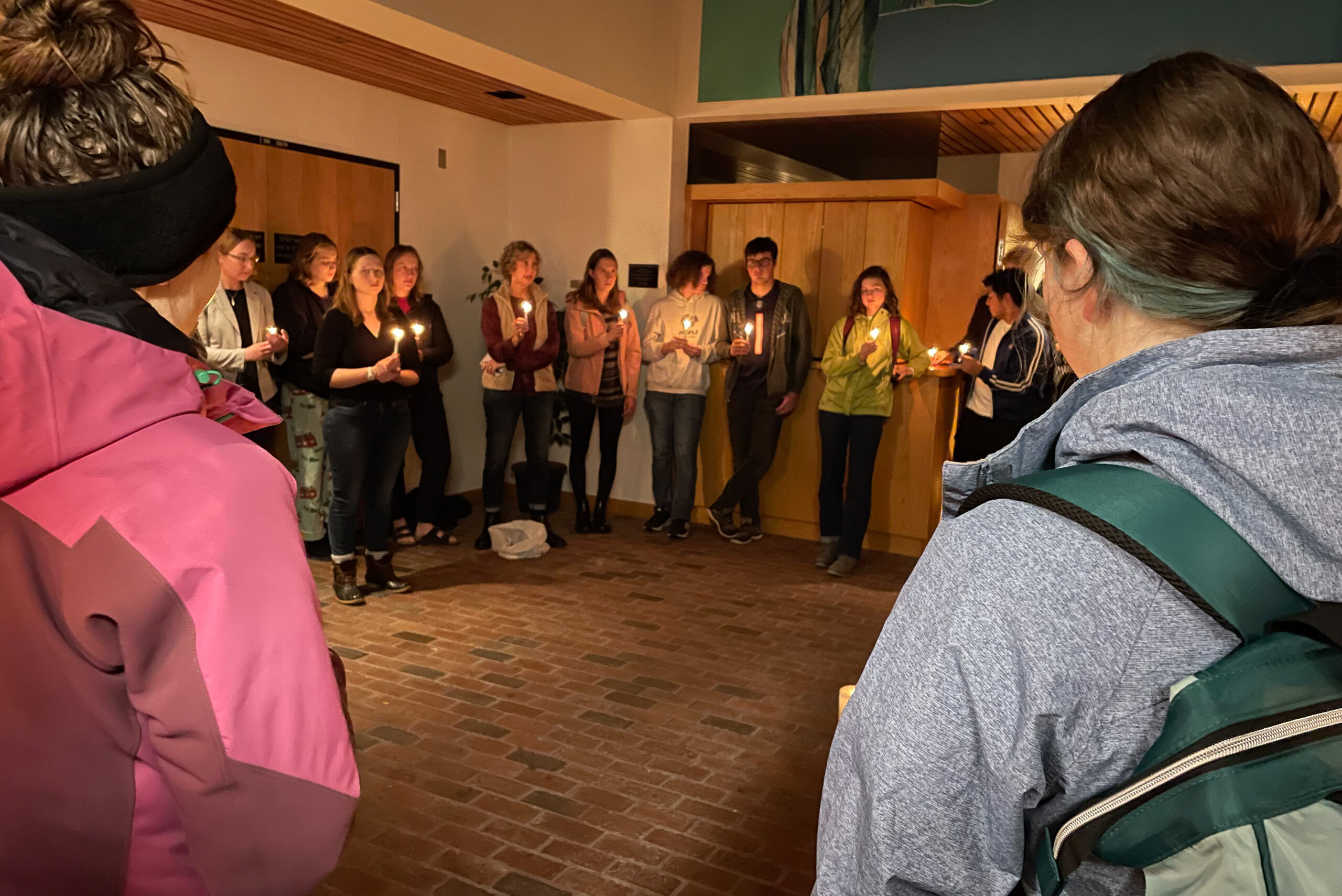The lobby of Umble Center was overflowing with Goshen College faculty, staff and students for a peace vigil dedicated to the recent events in Israel and Palestine. Last Thursday evening, 80 people arrived for the observance which began with people spilling out the doors into the rainy weather.
Organized by Luisa Dutchersmith, a junior elementary education (TESOL) major, Fatima Zahara, a junior music and theater double major, Meredith Blossom, a junior English and theater double major and Phillip Witmer-Rich, a junior music and English double major, the vigil was devoted to making space for mourning, prayer, storytelling and silence. Dutchersmith, Blossom and Witmer-Rich were part of the Israel and Palestine May Term earlier this year with 13 other students who traveled through the region to learn more about the religio-political history and interreligious peacebuilding.Breanna Nickel, assistant professor of Bible and religion and leader of the May Term, opened the vigil with context on the conflict. She mentioned the spark of Zionist movements, key dates from the last 75 years and the ever-present reality of conflicting news media
“It’s hard to speak to, again, all of the narratives that exist surrounding Israeli-Palestinian territories,” Nickel said.
The recent escalation of the Israel and Palestine conflict began on Oct. 7 with an attack on Israel by Hamas, the political and military government of Gaza. In response, the Israeli government launched large-scale strikes throughout Gaza, killing thousands and displacing at least half of the 2 million Palestinians in the region.
 Fatima Zahara recites a section of the Quran during the vigil. Tyson Miller for The Record
Fatima Zahara recites a section of the Quran during the vigil. Tyson Miller for The Record
Over the past three weeks, approximately 1,400 Israelis and 5,000 Palestinians have died as a result of the conflict between Hamas and the Israeli government according to the United Nations. Despite the immediacy of the current situation, as Nickel outlined, the tension lies in a much longer timeline.
As students gathered at GC a week later, focusing on stories of the Palestinian people, a remembrance of lives lost on both sides and a focus on the context and history of the conflict. “I think it was important to have a place for students to acknowledge the great conflict that is going on in Israel and Palestine,” Witmer-Rich said. “Specifically, hearing the Palestinian perspective.”
Witmer-Rich followed Nickel’s discussion with a personal account of the Aida refugee camp in Bethlehem, Palestine. His story focused on the generations of Palestinian refugees living in Aida and their unwavering resilience and hospitality in the face of oppression. Blossom also spoke to this in her speech, with reference to Tent of Nations, a Palestinian family-owned farm and center for peace and justice education.
For Witmer-Rich, being given an “opportunity to speak on my experiences a little bit and just speak to the humanity of the people over there was really impactful for me.”
That said, Blossom also reiterated the importance of the actions students take following the vigil.
“I don’t want it to be the last thing we do,” Blossom said. “We want it to be the beginning of spreading awareness.”
Similarly, Faith Fegley, a senior writing major who was also a part of the Israel and Palestine trip this spring, shared: “I am ethnically Jewish, and I cannot find the right words to express the shame of the symbol of my family being on the flag of Israel. … Judaism was never meant to be used as a weapon. … I ask you to remember that Judaism and Israel are separate entities. … What I’m asking of us and what I’m asking of myself is that this will not be the last moment we speak about Palestine on our campus.”



